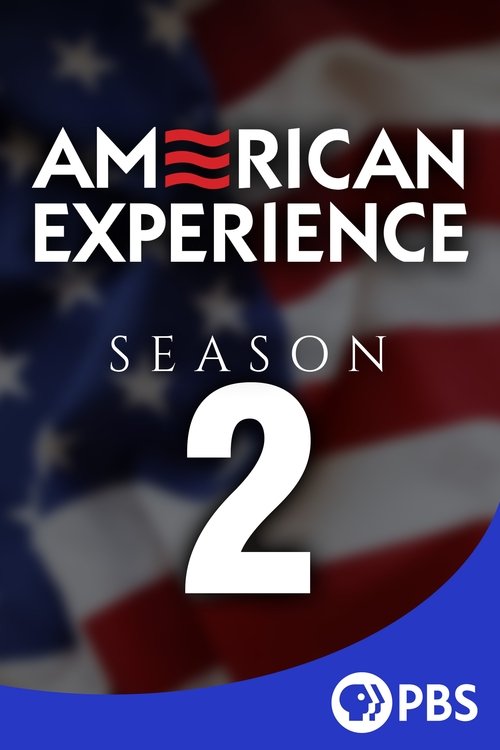
Broadcast date
03-10-1989 • 16 episodes
Episodes of this season
1. The Great Air Race of 1924
The first around-the-world air race, sponsored by the Army Air Service to prove that the airplane had a commercial future, was the ultimate test of man and machine. Four pilots took off in single-engine, open-cockpit planes; 175 days later, two remaining pilots would land where they'd begun, in Seattle.
2. Demon Rum
Prohibition's effect on Detroit, Michigan, the first major American city to "go dry," where smuggling liquor across the Canadian border became the second largest indusry in town. A humorous, wild tale related by residents who lived through this national experiment which lasted from 1920 to 1933.
3. A Family Gathering
Lise Yasui explores three generations of her Japanese-American family - from their immigration to Oregon in the early 1900s through their imprisonment in internment camps during World War Two.
4. The Great War: 1918
All lingering 19th-century notions of the romance of battle were replaced by the terrible reality of 20th-century mechanized warfare. At Verdun, the French lost 300,000 men; at the Somme, the English lost one million. Against this setting, America reluctantly sent its boys to fight. The wrenching and heroic accounts of U.S. soldiers and nurses who served in the closing battles of the bloodiest war of the century.
5. Wildcatter: A Story of Texas Oil
The tale of mavericks whose risk-taking, sweat and dreams changed an American industry. Starting with Spindletop, the first Texas gusher in 1902, rare archival film and interviews with pioneering oilmen are set against a contemporary story of a modern "wildcatter," gambling to find his fortune in yet another narrow hole in the Texas earth.
6. Forever Baseball
There is hardly a city, town or village without a baseball diamond. More than a game, baseball is a tradition, rite of passage, an enduring passion, a code for understanding the culture. A wry, philosophical essay on what makes baseball the great American pastime.
7. Mr. Sears' Catalogue
They started selling watches. Then Richard Sears and Alva Curtis Roebuck started a revolution -- a "wish book" that made life on the farm a little easier and put consumer goods within reach of every American. A story of entrepreneurial triumph as well as an affectionate portrait of America from the 1890s through the 1920s.
8. Yosemite: The Fate of Heaven
A stunning film portrait of Yosemite National Park. The film's narration is taken from using the 1851 diary of the first expedition of soldiers into the sacred valley home of the Ahwahnechee tribe and introduces today's hikers and campers, to whom Yosemite is a true shrine.
9. Adam Clayton Powell
Affluent, handsome, light-skinned and blond, he could pass for white. But his message about "economics and jobs" would make him one of the most charismatic black leaders in the 20th century. A U.S. Representative for 25 years, he pushed through social legislation, but his relish for money and fast living eventually led him to political ruin.
10. Journey to America
A tribute to the twelve million people who emigrated to the U.S. between 1890 and 1920. A recapturing of the journey through Europe to seaport towns, to the arrival in New York Harbor, and into the early months of settlement from urban ghettos out into the prairies. Letters, diaries and oral interviews are used to depict one of the largest single human migrations in history.
11. Ballad of a Mountain Man
Bascom Lamar Lunsford was a pioneer folklorist who in the 1920s began a campaign to preserve mountain music and dance. He dignified what was known as "hillbilly music." Knocking on doors of local banjo pickers and fiddlers, listening to their songs, he amassed an extraordinary repertoire, recorded for the Library of Congress and started the first folk music festival.
12. Ida B. Wells: A Passion for Justice
Born into slavery, she became a journalist and newspaper owner in Memphis, and was radicalized following the lynching of three friends. Her crusade against lynching led to death threats, but she bravely continued for the rest of her life to call for an end to sexism and racism.
13. Orphans of the Storm
In the summer of 1940, as the German Luftwaffe began its assault on England, 10,000 British children were sent on a perilous sea voyage to safe havens in the United States. There, they forged life-long relationships with their "adopted" families, relationships that changes lives and attitudes on both sides of the Atlantic.
14. Forbidden City, USA
Before WWII, San Francisco's Chinatown was a separate world, closed to outsiders, ruled by rigid homeland customs. But in the 1930s, second generation Chinese Americans defied cultural tradition to pursue their passion for American music and dance. They started careers as "Chinese Fred Astaires" and "Chinese Frank Sinatras" in one of the city's famous Chinatown night clubs, Forbidden City.
15. Battle for Wilderness
The first major battle for wilderness preservation erupted over the building of Hetch Hetchy Dam in Yosemite National Park in 1906. On the one side were the purists who argued that wildlands were to be left as God made them; on the other, those who believed in the wise management of natural resources. President Roosevelt, an ardent conservationist, was caught between the two.
16. Roots of Resistance: The Story of the Underground Railroad
Men and women, black and white, risked their lives to carve an elaborate network of escape routes out of slavery in the mid 1800s -- trails and backroads, safehouses, river crossings and night trains leading as far north as Canada. Disguises, secret rendezvous and special codes were used to guard the identity of "conductors" and their fugitive "passengers." But flight to free territory didn't guarantee freedom; fugitives could be hunted down and returned.
Show more expand_more
keyboard_double_arrow_down